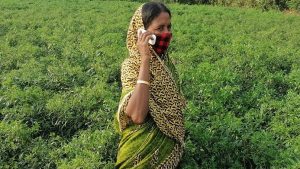Several studies suggest that demand-based agricultural extension services support farmers in adoption as well as diffusion of technology. In this context, the MS Swaminathan Research Foundation (MSSRF) has been implementing demand-based extension services for farmers to build their resilience capacity to combat climate risks in Assam and Odisha.
The project name ‘RESILIENCE’ has been developed and being implemented in selected climate hotspots like Cuttack and Ganjam districts of Odisha and Sivsagar and Golaghat districts of Assam.
Resilience project is funded by funded by the Ministry of Foreign Affairs, Norway (the Norwegian Embassy, New Delhi) and implemented in partnership with Odisha University of Agriculture and Technology, Assam Agricultural University, Indian Council of Agricultural Research – National Rice Research Institute (ICAR-NRRI), Cuttack, International Water Management Institute, and Norwegian Institute of Bioeconomy Research, Norway. The project’s primary focus is to build adaptive capacity of the men and women farmers to climate change, primarily floods in Assam and droughts in Odisha.

Climate Change is real and affecting the farming community through loss of yield and increasing investment. Small and marginal landholders are the most vulnerable to changing climate and its variabilities. They face both abiotic and biotic risks in production. According to the annual Economic survey 2017-18 report, Government estimated that “Farmer income losses from climate change could be between 15% and 18% on average, rising to anywhere between 20% and 25% in unirrigated areas”.
The project provides a platform to offer demand-based, timely, locale-specific, and dynamic information services for the farmers to build their resilience capacity to combat climate risks.
The “Helpline” service is one of the key digital tools to address individual farmers’ queries on agriculture information, advisories, and other services in time through mobile phones. The ‘Helpline’ number is getting popular among the farmers and community. An expert panel has been constituted comprising a panel of agriculture experts from agriculture universities, KVK, and the agriculture department to address the queries.
The helpline services in the RESILIENCE project study sites received 3,386 queries from 3,372 farmers, including 951 women farmers from April 2020 to April 2021. About 68 percent of the farmers have approached the helpline services for pest and disease management and agronomic management issues and means to access entitlement schemes.

